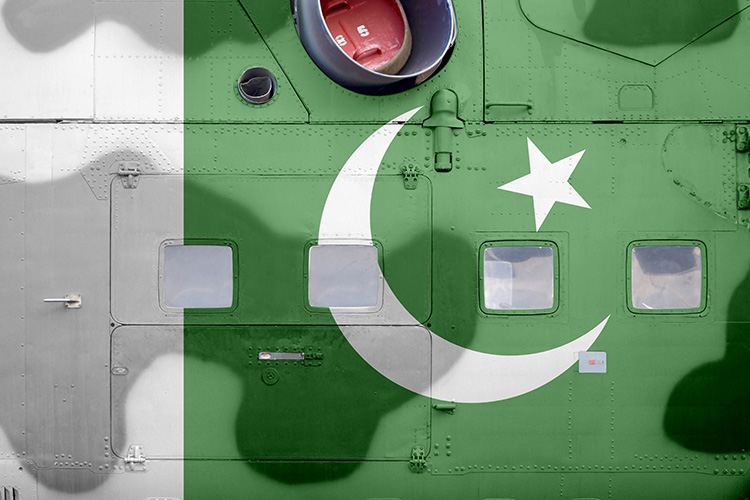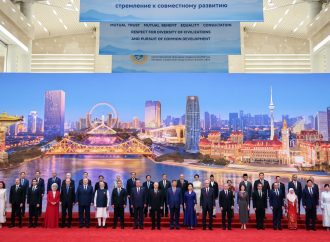Author Recent Posts Zahid Hussain Latest posts by Zahid Hussain (see all) Pak-Afghan Border Tensions in October 2025: What Does Pakistan Want from Afghanistan? – November 4, 2025 Can Trump’s Twenty Point Peace Plan Be Materialized for Gaza? – October 9, 2025 Navigating Pakistan’s Foreign Policy Challenges Amid U.S.-China Row – October 1, 2025
Pakistan and Afghanistan relations took a sharp turn for the worse once again as both states engaged in six-day skirmish. These border clashes consisted artillery shelling, airstrikes, and public condemnations have defined a tense month between the two neighbors. Both sides have faced massive casualties in soldiers and civilians highest in recent times. Despite ceasefire, the underlying issues still remains unresolved, raising serious about long-term regional stability. At the center of the issue is one critical question: What does Pakistan want from Afghanistan? Pakistan’s concerns are not new, but they have reached a new level this year. The Pakistani leadership, both civilian and military, has been vocal in articulating its expectations from the Afghan Taliban regime, which took over in Kabul in 2021.
Pakistan’s most critical and regular demand for Afghanistan to stop hosting militants specifically the Tehreek-e-Taliban Pakistan (TTP) that conduct cross-border attacks from Afghan soil. Islamabad accuses the Taliban-led Afghan government of providing safe heavens or being unable to restrict these groups. Right after coming to power the TTP has increased its attacks in Pakistan’s tribal and border areas, leading to dozens of military and civilian casualties. Pakistan wants the Afghan government to take decisive action in shape of dismantling TTP camps, stopping cross-border infiltration, and sharing intelligence. In Islamabad says if these steps are not taken, counter strikes inside Afghanistan like those seen earlier this month will become a new reality.
Islamabad has been forced to take a direct response in response to many instances of cross-border attacks, the destruction of Pakistani military outposts, and other violations of territorial integrity. Pakistan’s authorities have stated constantly that they will not accept any threat to its sovereignty. In a joint statement, President Asif Ali Zardari and Field Marshal Asim Munir stressed that Pakistan will “defend every inch of its territory” and will not tolerate provocations. This expectation extends beyond the military to include political and diplomatic aspects. Pakistan wants Kabul to stop hostile actors from launching strikes across the Durand Line and legally recognize its territorial limits.
In response to continued cross-border attacks, Pakistan appears to be resetting the rules of engagement. For decades, it followed a cautious approach in dealing with threats emanating from Afghanistan. However, the recent escalations suggest a shift in strategy Islamabad is signaling that attacks will no longer be tolerated passively. This new normal includes military responses, airstrikes against militant hideouts, and pressure on the Afghan government to curb hostile activities. By drawing clear red lines, Pakistan wants to establish a deterrent that prevents future incursions or attacks on its soil. Beyond military tensions, the ongoing conflict has disrupted daily life for thousands of people living along the border. Key trade routes and crossings including Torkham, Chaman, Kharlachi, and Angoor Adda have been repeatedly closed due to violence or security threats. These closures harm local economies, disrupt humanitarian supplies, and increase tensions among civilian populations on both sides.
Pakistan wants a stable system for border on its west This includes safety guarantees for transporters, a crackdown on smuggling, and coordination between both governments on border management. Pakistan believes that the Taliban regime has not upheld the spirit of the Doha Agreement and other prior understandings about using Afghan territory for peaceful purposes. Islamabad argues that hosting militants regardless of ideological ties undermines regional stability. Islamabad also wants the Afghan government to respect prior border management frameworks and maintain open communication to prevent misunderstandings or unintended escalations.
Pakistan’s clear expectations of stable western front face several obstacles that make full cooperation difficult. This is due to limited control by the Taliban over Afghanistan while in power and struggle to maintain control over all factions in the region. Groups like the TTP and ISKP (Islamic State Khorasan Province) operate with significant autonomy, making it hard for Kabul to enforce a crackdown without facing internal backlash. Afghan officials see Pakistan’s airstrikes as violations of their sovereignty, regardless of the target. This escalates tensions and reduces the space for dialogue. Thirdly the 2,600 km-long Durand Line is mountainous, largely unregulated, and difficult to patrol. Militant groups have exploited this terrain for years, making border control a logistical nightmare.
Diplomatic efforts have been fruitful as Pakistan and Afghanistan have reached to a ceasefire agreement. After a week of deadly cross-border clashes, with mediation led by Qatar and Turkey. The deal includes an immediate halt to hostilities, mutual respect for sovereignty, and a pledge to prevent the use of each other’s territory for attacks. Both sides have committed to follow-up meetings, including one in Istanbul, to establish monitoring mechanisms. However, concerns remain over the sustainability of the truce. Armed groups such as Tehreek-e-Taliban Pakistan (TTP), which operate from Afghan territory, were not part of the negotiations and remain a major threat to lasting peace. The porous border and limited control of the Afghan Taliban over these groups further complicate enforcement. While the ceasefire may hold in the short term between state actors, the risk of renewed violence remains high. Long-term success depends on robust monitoring and the Afghan government’s ability to rein in militant activity within its borders.
Pakistan’s demands from Afghanistan are rooted in a desire for security, sovereignty, and regional stability. Islamabad is no longer willing to tolerate ambiguity on the issue of cross-border militancy. It wants Kabul to act clearly, decisively, and consistently. However, the road ahead is fraught with challenges. Without trust, coordination, and external pressure, the two nations may continue down a dangerous path. The next few weeks will be crucial in determining whether Pakistan and Afghanistan can step back from the brink or whether October 2025 marks the beginning of a prolonged conflict on their shared frontier.
- Pak-Afghan Border Tensions in October 2025: What Does Pakistan Want from Afghanistan? - November 4, 2025
- Can Trump’s Twenty Point Peace Plan Be Materialized for Gaza? - October 9, 2025
- Navigating Pakistan’s Foreign Policy Challenges Amid U.S.-China Row - October 1, 2025


















Leave a Comment
Your email address will not be published. Required fields are marked with *